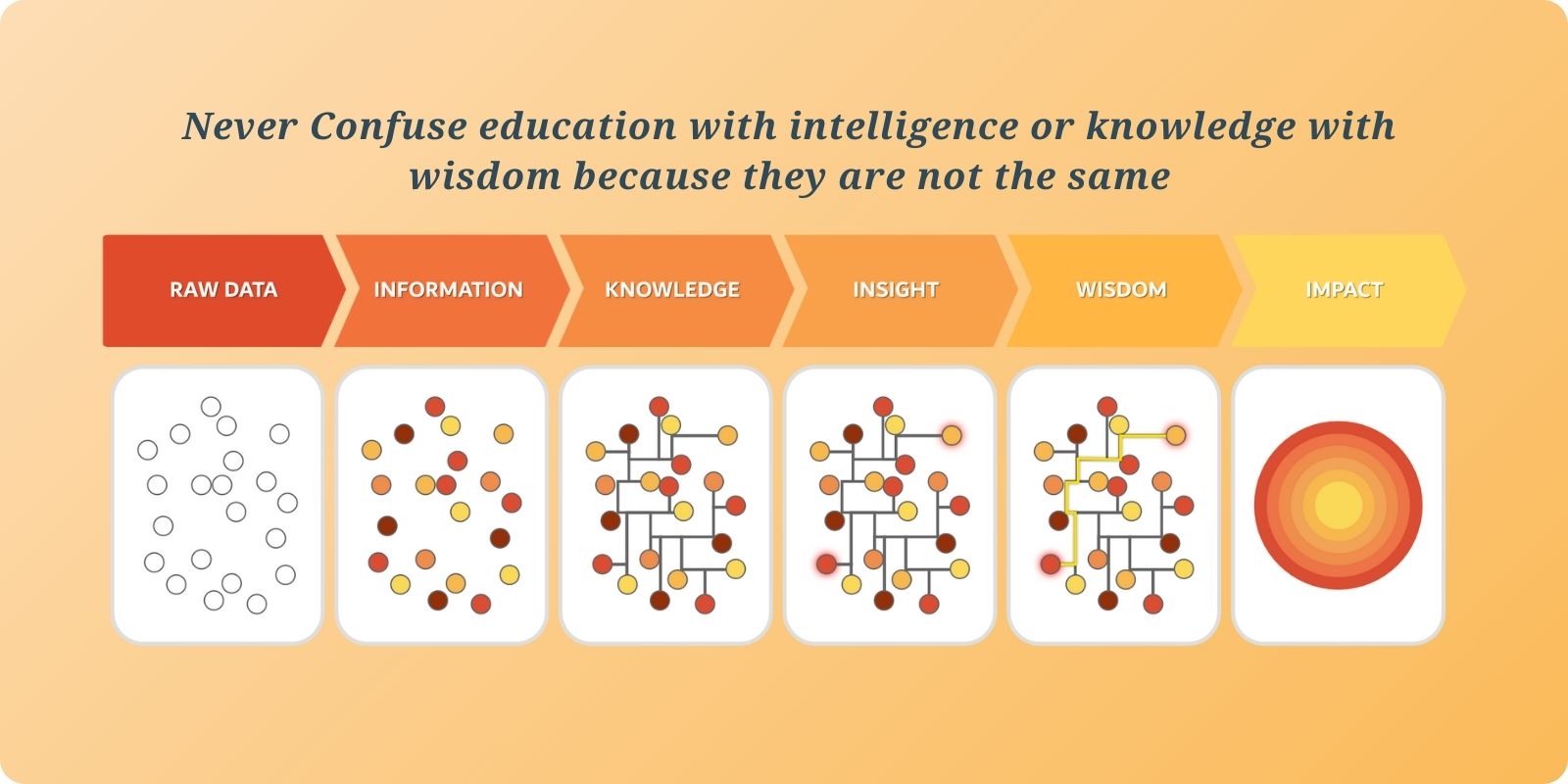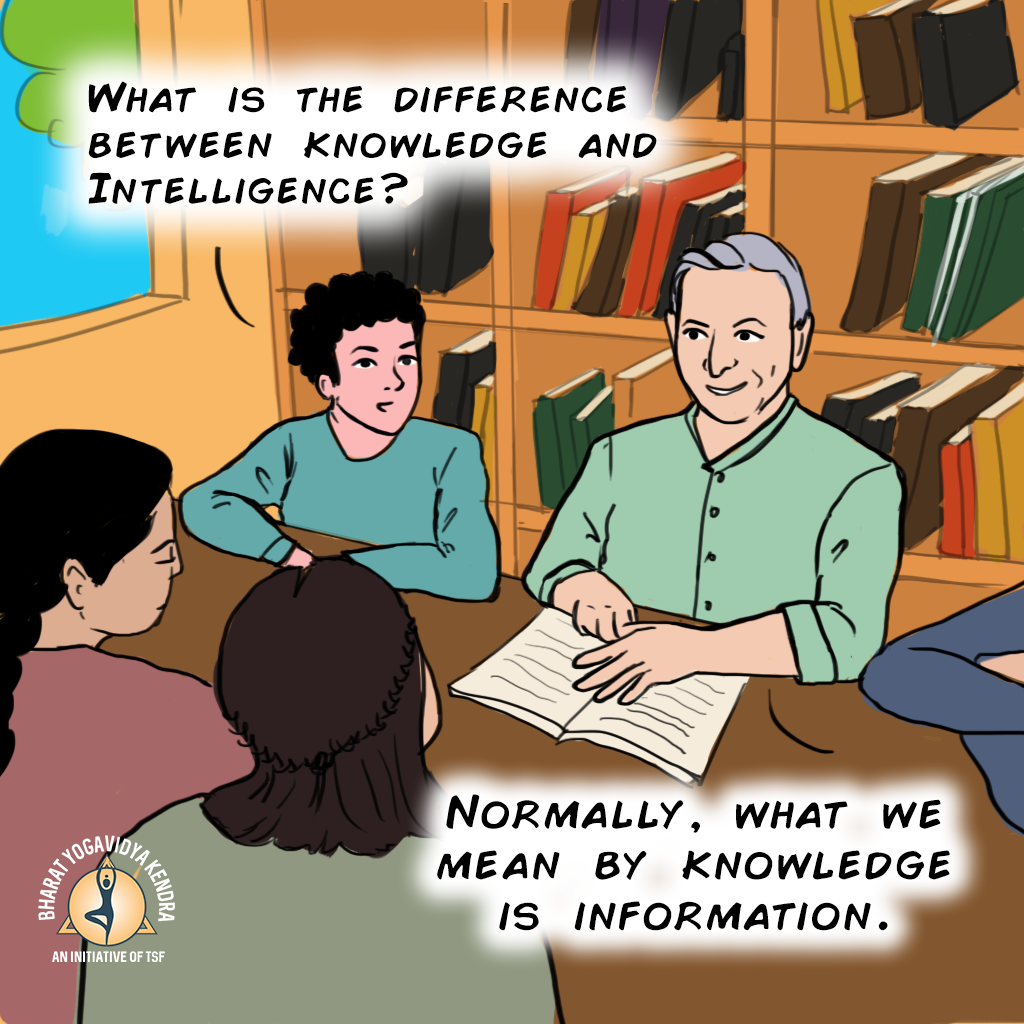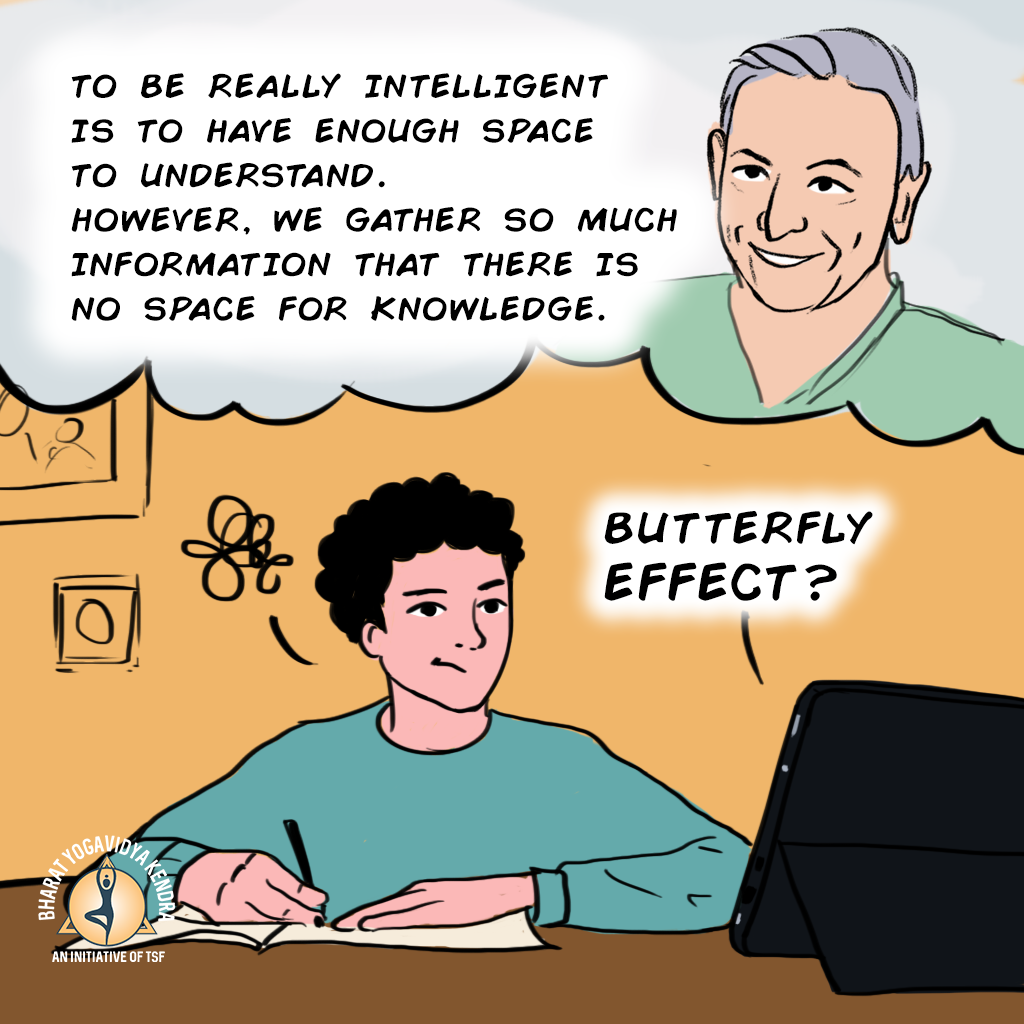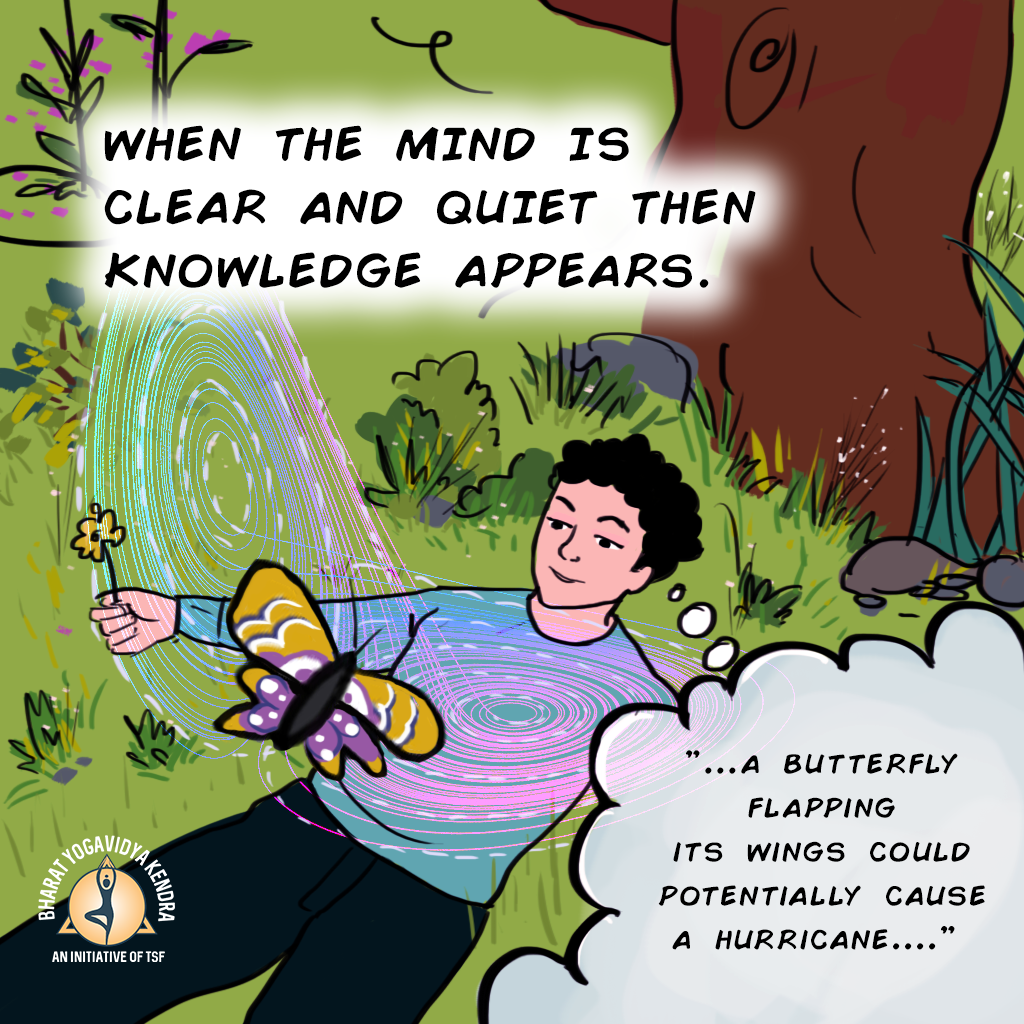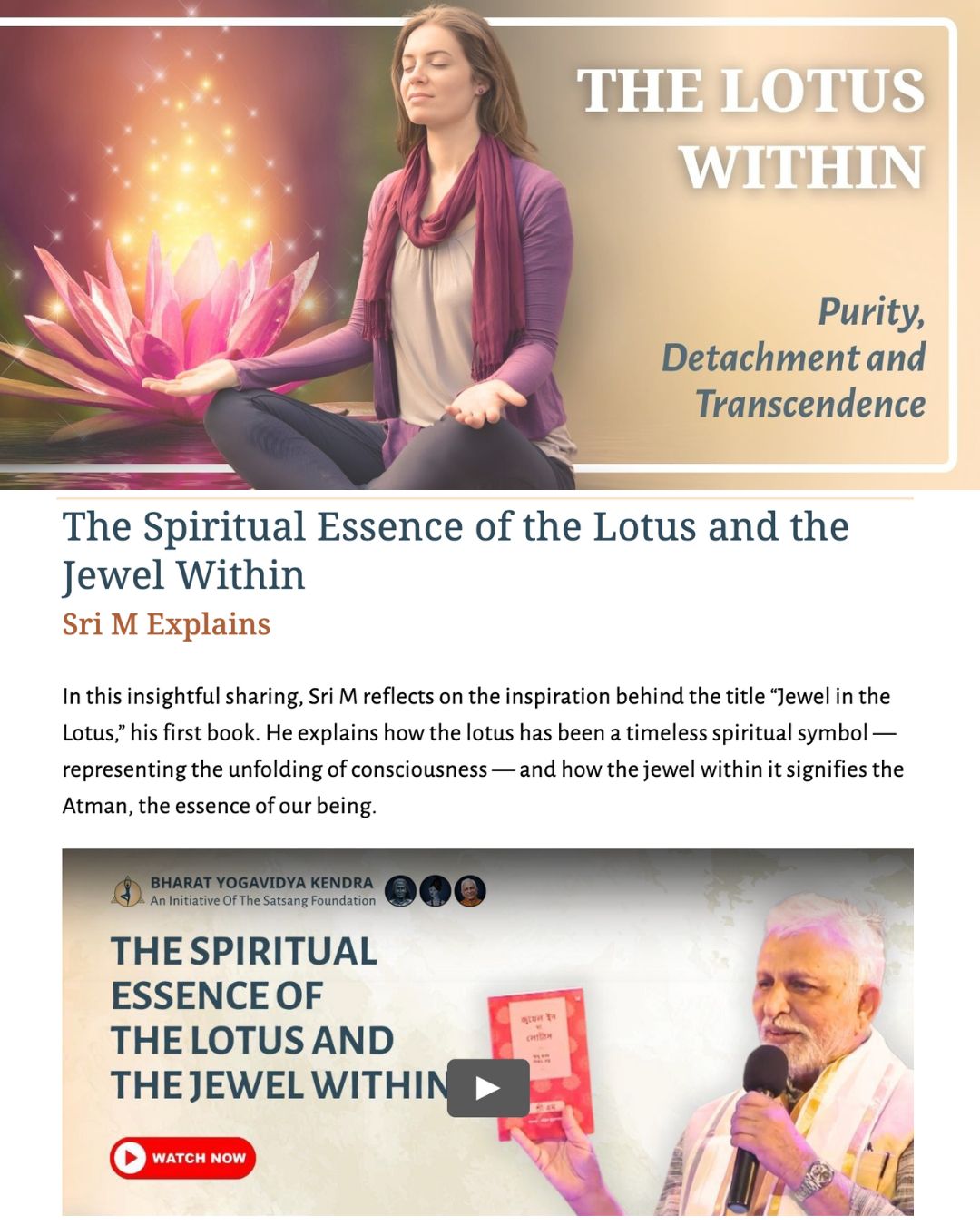Knowledge vs Wisdom – A Quiet Inner Shift
“Knowledge may be gathered from books. Wisdom comes only through inner transformation.”
— Sri M, On Meditation
In the sacred journey of learning, knowledge is often our first step — an earnest search for understanding through scriptures, classes, and contemplation. But as Sri M gently reminds us, “The descriptions cannot be the reality.” One may master the texts and concepts, yet still miss the silent essence that transforms.
This is the subtle distinction between knowledge and wisdom. Knowledge is gathered — from books, teachings, discussions. Wisdom, however, arises from within. It is not about how much we know, but how deeply we live what we know.
The Mundaka Upanishad makes this distinction beautifully — between apara vidya, the outer knowledge of texts and rituals, and para vidya, the inner realization of the Self. Sage Narada’s story in the Chandogya Upanishad echoes the same: though learned in many disciplines, he confesses his sorrow to Sanatkumara, for he has not realized the Self.
Sri M often says that true vidya leads us inward — to peace, clarity, and transformation. We might know about forgiveness, but can we practice it when hurt? We might study meditation, but have we touched stillness? Wisdom is not spoken; it is expressed in how we respond, relate, and live.
Wisdom, then, is not a peak to be reached but a presence to be lived — quietly, sincerely, moment by moment. It reveals itself not in answers, but in the silence between them. And in that stillness, what we once sought as knowledge begins to shine forth as truth.
Om tat sat.
-Vivek Rengaraj
Knowledge & Wisdom
Sri M Explains
In this insightful video, Sri M delves into knowledge and wisdom to transform our lives.
Talk with M
BLOG POST
Intelligence, Knowledge & Wisdom
Introduction
Artificial Intelligence (AI) is the new buzz word. I wonder why we don’t have a concept called Artificial Wisdom (AW) ? Why do we call it an ‘intelligent algorithm’ rather than a wise one. Consider the dichotomy between a wise old man and an intelligent student, or the distinction between the wisdom of the Rishis and the intelligence of a scientist. Why is it normal to prefix as above – can they be interchanged? Reflect on these before reading this blog.
What is Intelligence, Knowledge & Wisdom
Intelligence, Knowledge & Wisdom are closely linked terms and may sound synonymous. But there are subtle differences. Intelligence seems like a gift you are born with, you can develop it further. Knowledge is the outcome of your intelligence & hard work. Wisdom is how you apply this knowledge to connect the dots, develop insights and apply them to solve a problem, build a product, company or develop a concept. You can use your wisdom for the well-being of humanity or for destructive purpose – this power of discrimination has been given to humans….
BOOK REVIEW
Be As You Are – The teachings of Shri Raman Maharishi
-Edited by David Godman
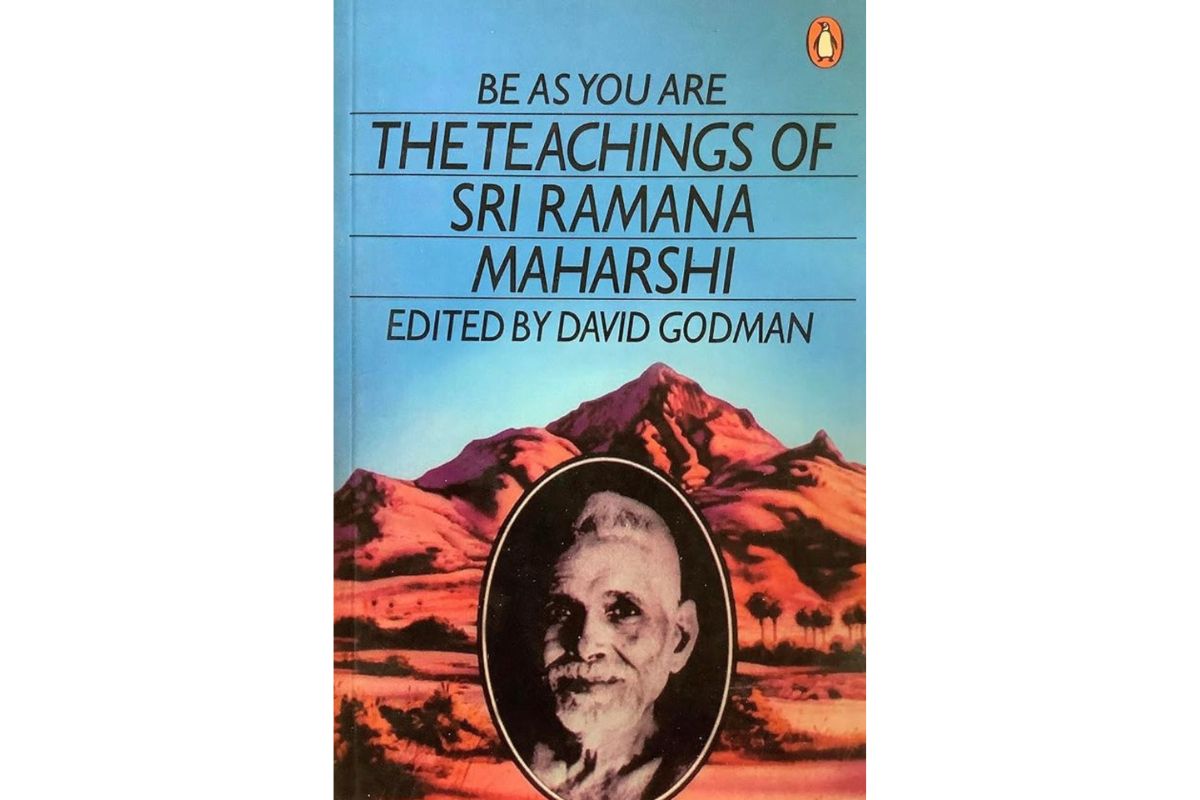
If you’re drawn to the inner path, Be As You Are isn’t just a book – it’s a mirror held up to the soul. This profound collection of dialogues and teachings with the great sage Sri Ramana Maharshi unravels the deepest questions of human existence with startling simplicity and quiet power. Through gentle but piercing clarity, he leads readers back to the essence of all inquiry: Who am I?
Unlike intellectual texts that dance around philosophy, this book invites you to experience truth directly. There’s no dogma, no dramatic rituals – just the radical path of self-inquiry (atma vichara). Maharshi’s responses, though minimalist, carry the weight of lived realization. Whether you’re new to spiritual practice or have tread the yogic path for years, his words feel like an ancient silence speaking through the page.
David Godman’s curation makes the text accessible without diluting its depth. The structure -topical Q&A style makes it easy to dip in and out, yet each passage leaves you quietly stirred, even transformed.
In a world addicted to doing and knowing, Be As You Are calls you home, to being and knowing who you truly are. Read it slowly, like a meditation. Not for information, but for inner ignition. This is not just a book – it’s a transmission.
YOGA GUIDE
Aligning the Body to Living the Practice
In the world of yoga, it’s easy to collect knowledge – asana names, alignment cues, ancient scriptures. But wisdom? Wisdom is felt. It’s when the body, breath, and awareness speak louder than your teacher’s voice.
Knowledge tells us how to do Trikonasana. Wisdom shows us why it matters, to ground when our thoughts scatter, to expand when we feel small, to breathe into corners of ourselves we usually ignore.
Have you ever adjusted an asana not because someone told you to, but because your inner voice whispered, “Here. Soften here”? That’s yoga’s true gift, not perfection, but perception.
In the Yoga Sutras, Maharishi Patanjali doesn’t begin with practices on the mat, he begins with yogas chitta vritti nirodha: stilling the fluctuations of the mind. This is the shift from knowing yoga as a form to embodying it as a state of being. It’s the wisdom that arises when you sit quietly after a class and feel lighter, not because you stretched, but because something inside you let go.
This month, try practicing with the question: “Am I doing yoga, or becoming it?” Let your mat be a mirror, not for your body, but for your truth.
Alumni Reflections
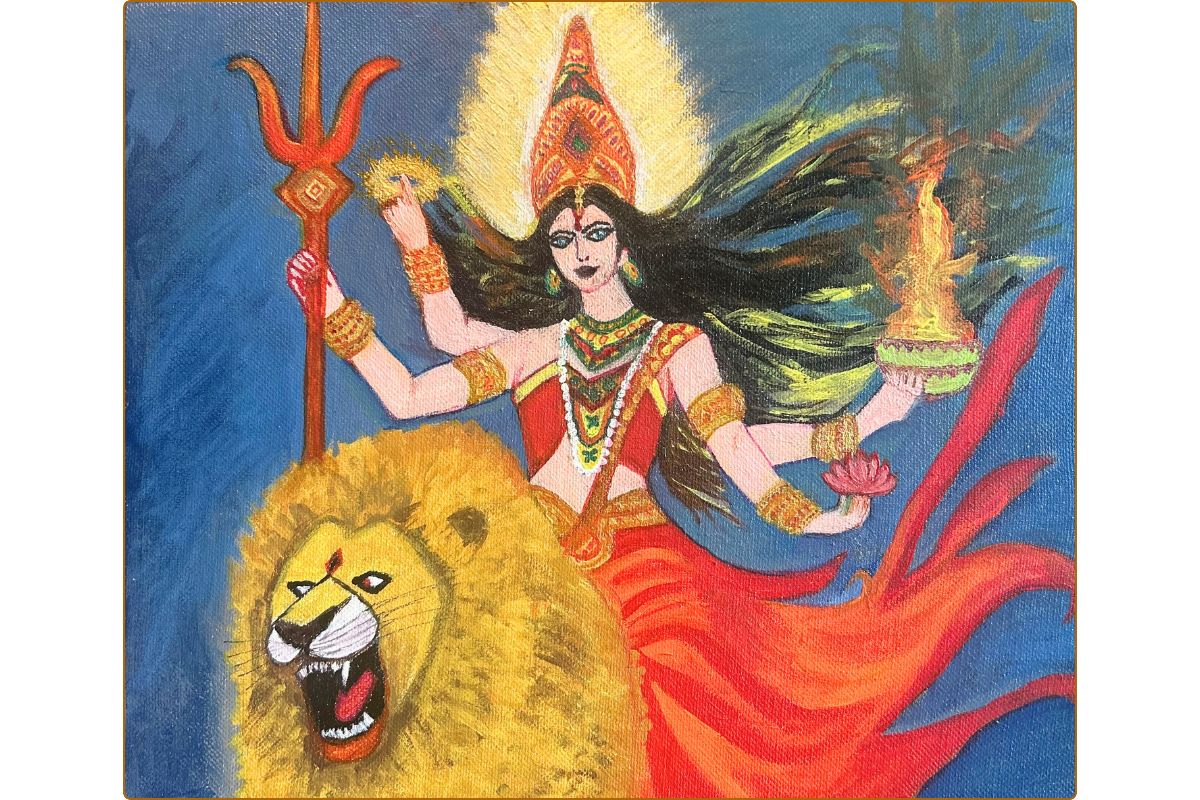
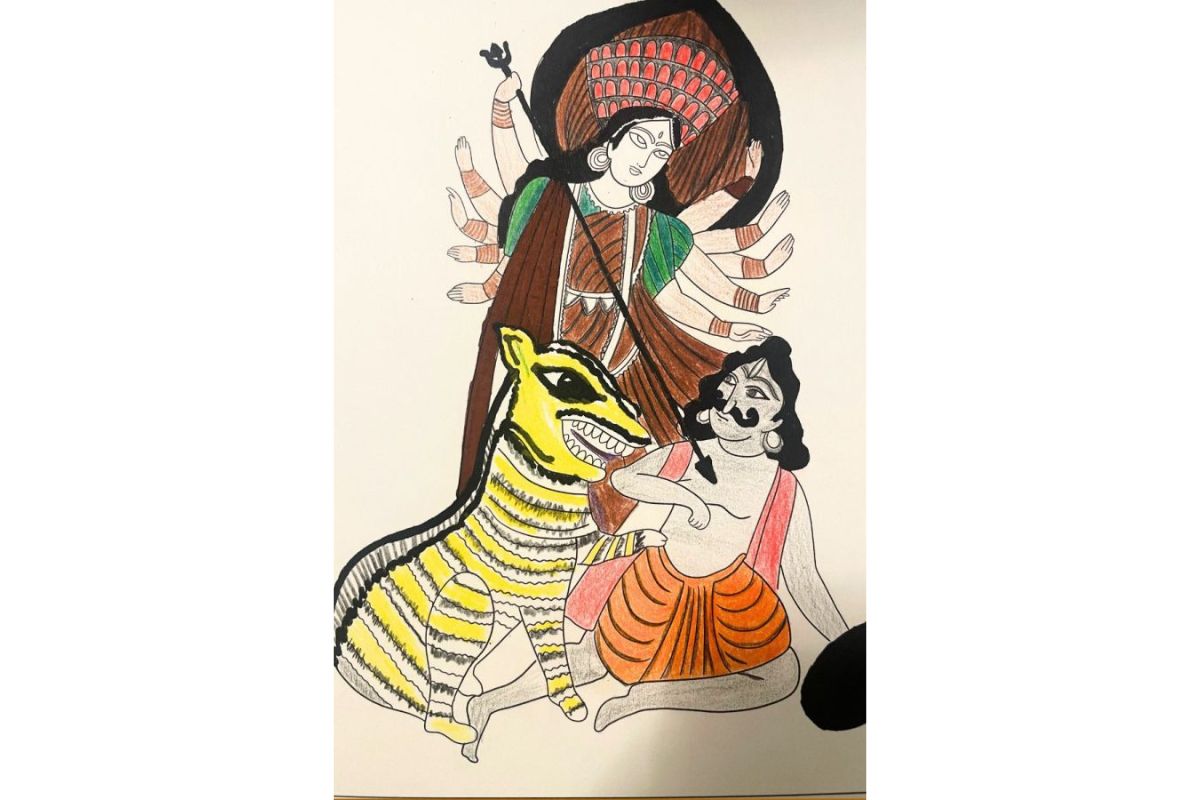
YOGA RESOURCE
Awakening Divine Energy
In the yogic journey, we often collect knowledge – names of asanas, benefits of pranayama, Sanskrit verses, philosophical concepts. But as the sages remind us, knowledge is not wisdom. Knowledge informs, while wisdom transforms. Wisdom arises not from what we read or memorize – but from what we embody.
This month, as we reflect on the theme “Knowledge vs. Wisdom,” here are a few handpicked resources to deepen your inner knowing:
“Awakening the Intelligence” – Talk by J. Krishnamurti
A powerful dive into how conditioning limits real perception. His insights on “learning without accumulation” bring knowledge and wisdom into sharp contrast.
“Karma Yoga & True Freedom” – Swami Sarvapriyananda
A beautiful breakdown of the Gita’s teachings on detached action and inner liberation. Deepens your understanding of knowledge in service of wisdom.
TESTIMONIALS OF TRANSFORMATION
कायेन वाचा मनसेन्द्रियैर्वा ।
बुद्ध्यात्मना वा प्रकृतेः स्वभावात् ।
करोमि यद्यत्सक्लं परस्मय ।
नारायणयेति समर्पयामि ॥
Thank you, Nithya Ma’am, for being a wonderful teacher throughout the course!
You’ve always maintained a humble smiling face throughout all the sessions. You’ve always shown great understanding and patience even if any of us made repeated mistakes while chanting. You have also always provided enough compassion and support to anyone of us needing any help while chanting. Thank you so much, again, for your kind and graceful teaching!
I also feel blessed to have been a part of this journey with all other participants of all ages having so much devotion towards God, humbleness and enthusiasm for learning. It has been a weekly 2 months satsang experience, even if online, that I believe was lacking in my life. Interacting with good people shifts our perspective and makes us believe in the existence of goodness in the world. So, thank you so much, everyone, for being a great co-learner with me!
I also believe that all this was made possible and has happened by Lord Vishnu’s will in my life and this will get too lengthy if I share my reason behind it. But I’m indeed grateful for this divine experience!
Amod Kelaskar
WHEN KNOWING ISN’T ENOUGH
Living the Inner Intelligence

In Ayurveda, the distinction between jnana (knowledge) and vijnana (wisdom) is beautifully clear. Knowledge may tell you turmeric is anti-inflammatory, but wisdom knows when to add it to your tea, why it soothes your unique constitution, and how your body responds, not just theoretically, but intuitively.
In the age of Google, we have access to an ocean of wellness information. Yet, imbalance, stress, and disconnection persist. Why?
Because Ayurveda teaches that true healing doesn’t come from knowing more, it comes from listening more. Listening to your agni (digestive fire), to the rhythms of nature, and to the inner buddhi (discerning intelligence) that already knows what’s right for you.
Do you feel heavy after raw salads in winter? That’s wisdom speaking.
Do you crave silence after overstimulation? That’s prakruti seeking harmony.
Ayurveda invites us to shift from overthinking to aligned living. It’s less about “rules” and more about resonance with seasons, cycles, and self-awareness. Notice what brings clarity, calm, and vitality. Your body is not a project to fix, but a teacher to trust.
“Live close to nature, and she will reveal your truth.”
Upcoming Courses & Retreats
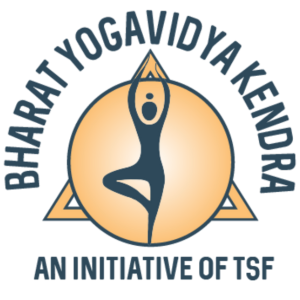
Thank you for reading

